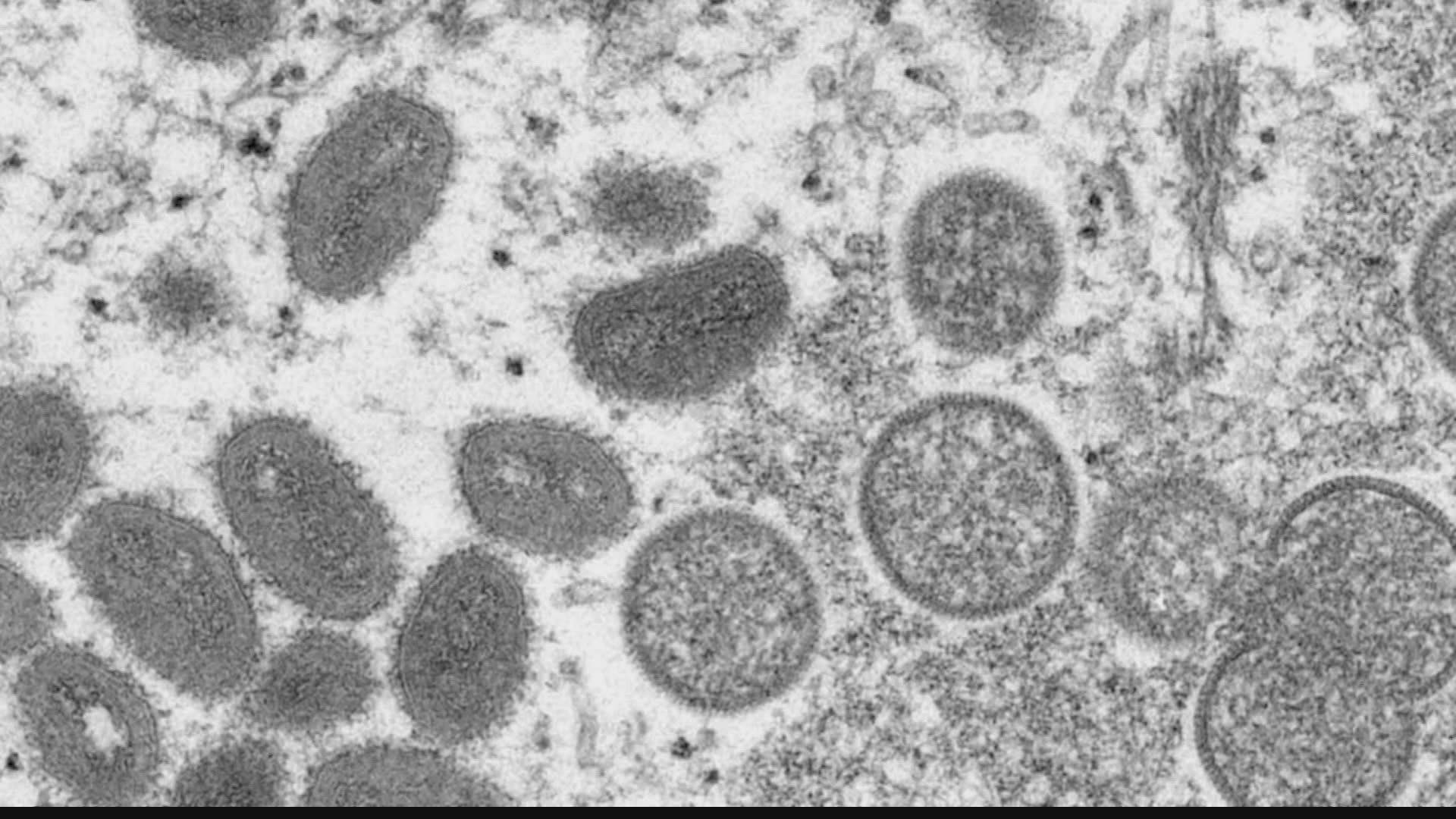INDIANAPOLIS — The Indiana Department of Health said a total of 45 monkeypox cases, included two cases in children, have been reported across the state between June 18 and July 28.
According to the IDOH, monkeypox is a rare disease caused by infection with the monkeypox virus, which is part of the same family of viruses as smallpox.
"Like many other states, Indiana has seen an increase in monkeypox cases over the past month," said State Health Commissioner Kris Box, M.D., FACOG, in a news release. "Monkeypox does not easily spread through brief casual contact, but it's important to remember that anyone can be affected if they are a close contact of a positive case. Hoosiers who believe they may have been exposed or who develop symptoms consistent with monkeypox are urged to contact a healthcare provider."
(NOTE: The video above is from a previous report on the state health department's preparations for the rising number in monkeypox cases.)
The IDOH said the symptoms of monkeypox are similar to smallpox but appear milder, noting monkeypox is rarely fatal.
According to the IDOH, monkeypox typically starts with a fever, headache, chills, muscle aches and exhaustion between five and 21 days after being exposed. A rash typically develops within one to three days after getting a fever. The IDOH said the rash can start in the mouth or any part of the body before spreading.
The IDOH said the virus typically lasts two to four weeks, and people are considered infectious until all scabs from the rash have fallen off and a fresh layer of skin has formed.
According to the IDOH, person-to-person transmission is possible either through skin-to-skin contact with body fluids, monkeypox sores or contaminated items, such as bedding or clothing, or through exposure to respiratory droplets during prolonged face-to-face contact.
As of July 29, Indiana has received 3,232 doses of Jynneos vaccine. Due to the limited supply, vaccines are initially being prioritized for close contacts to positive cases to prevent severe disease. Additional vaccine is expected soon, and eligibility will then be expanded to groups at high risk for exposure.
What other people are reading:
- Senate special session resumes; vote on abortion ball bill expected Saturday
- Former guidance counselor's termination by Roncalli upheld by Court of Appeals
- Will Smith breaks silence on Oscars slap
- 7-year-old boy found dead inside washing machine in Texas home
- Young and Braun vote against PACT Act aimed at helping suffering veterans

